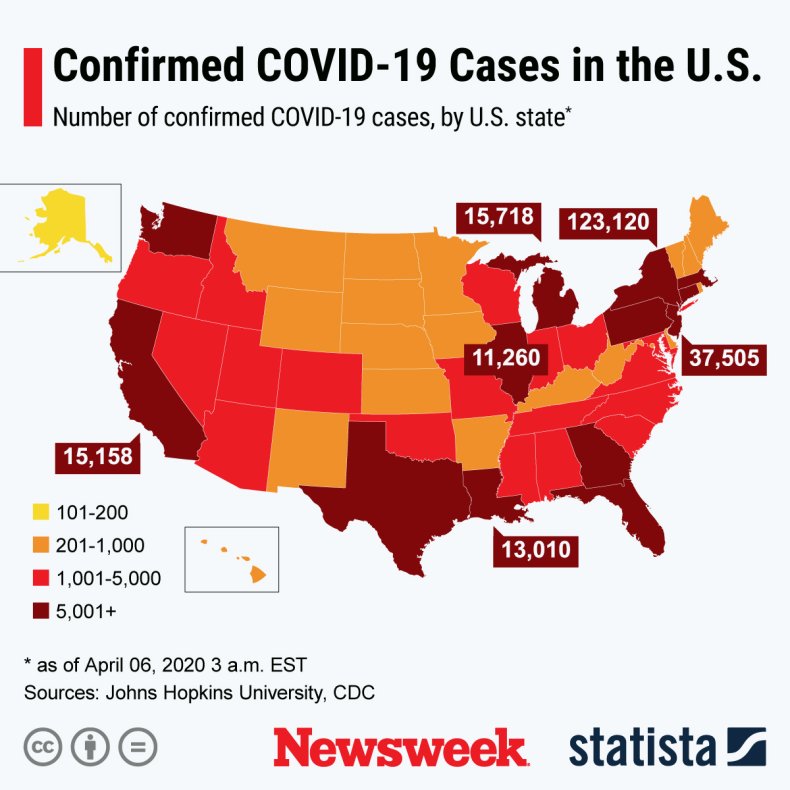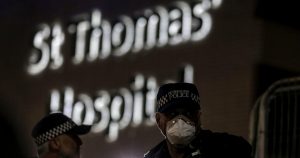Dozens of Republican lawmakers have written to the governor of Wisconsin urging him to reopen golf courses in the state after they were considered non-essential business and closed to help stop the spread of the coronavirus.
A total of 40 GOP legislatures, led by rep. Rob Hutton, signed the letter which was sent to Gov. Tony Evers‘ office on March 27 and seen by the Wisconsin Examiner and the Milwaukee Journal Sentinal.
The group suggested that golf courses be reopened with changes to make them safer to play on amid the COVID-19 outbreak.
Gov. Evers authorised safer-at-home executive order, signed on March 24 by Andrea Palm, Secretary-designee of the Wisconsin Department of Health Services, which closed all non-essential business, as well as places offering amusement or outdoor activities such as cinemas or water parks.
The playing of team sports was also banned by the order, but activities such as biking, hiking, or running are still allowed if social distancing is followed.
“While many outdoor activities remain open for the public to enjoy, including State Parks, the Evers Administration has ordered the closure of all golf courses in the State of Wisconsin,” Hutton wrote. “Golf is a popular outside sport and can be good exercise for those who play.”
The group suggested new guidelines to allow the courses to be reopened, including keeping the playhouses closed, only allowing four golfers per hole and one golfer per cart, and ensuring all players distance themselves.
The letter also notes that the Wisconsin PGA/WPGA Junior Foundation, Wisconsin State Golf Association, Wisconsin Golf Course Superintendent Association and the Golf Course Owners of Wisconsin added their own additional guidelines to allow play to continue, which Evers could consider.
These include removing objects on course that could be touched such as ball washers, rakes, benches and flagsticks, only allowing online or over the phone payments and having tee times a minimum of 12 minutes apart.
Golf course owners in the state are also urging Evers to allow them to be reopened, fearing their business will not survive until the safer-at-home restrictions begin to be lifted on April 24.
“Unfortunately, as with all the non-essential businesses, we will take a large hit to the bottom line with this shutdown,” Mike Woodward, the general manager at Norsk Golf Club in Mount Horeb, told the Middleton Times Tribune.
“Losing 45 days worth of revenue is impossible to make up for this time of year. No time is ever good, but the timing for us is especially difficult as the season will start to ramp up soon. Unfortunately, we can’t just close the doors for a month. The course still needs to be maintained and we will still incur other expenses to get ready for the season when Governor Evers’ order is lifted.”
Elsewhere, an online petition calling for Evers to allow Wisconsin golfers to play on courses has attracted nearly 65,000 signatures.
“The business and maintenance of the golf course must continue to be done or they will ‘lose the course.’ For them to do this without any income coming in will ruin them,” a description on the Change.org petition reads.
Evers‘ office has been contacted for comment.
There are more than 368,000 confirmed cases of COVID-19 in the U.S., with nearly 11,000 deaths according to Johns Hopkins University. A total of 19,865 people have managed to recover from the virus.
This graph, provided by Statista, shows the spread of COVID-19 in the U.S. as of April 6.
 Statista
StatistaCenters for Disease Control and Prevention Advice on Using Face Coverings to Slow Spread of COVID-19
- CDC recommends wearing a cloth face covering in public where social distancing measures are difficult to maintain.
- A simple cloth face covering can help slow the spread of the virus by those infected and by those who do not exhibit symptoms.
- Cloth face coverings can be fashioned from household items. Guides are offered by the CDC. (https://www.cdc.gov/coronavirus/2019-ncov/prevent-getting-sick/diy-cloth-face-coverings.html)
- Cloth face coverings should be washed regularly. A washing machine will suffice.
- Practice safe removal of face coverings by not touching eyes, nose, and mouth, and wash hands immediately after removing the covering.
World Health Organization advice for avoiding spread of coronavirus disease (COVID-19)
Hygiene advice
- Clean hands frequently with soap and water, or alcohol-based hand rub.
- Wash hands after coughing or sneezing; when caring for the sick; before, during and after food preparation; before eating; after using the toilet; when hands are visibly dirty; and after handling animals or waste.
- Maintain at least 1 meter (3 feet) distance from anyone who is coughing or sneezing.
- Avoid touching your hands, nose and mouth. Do not spit in public.
- Cover your mouth and nose with a tissue or bent elbow when coughing or sneezing. Discard the tissue immediately and clean your hands.
Medical advice
- Avoid close contact with others if you have any symptoms.
- Stay at home if you feel unwell, even with mild symptoms such as headache and runny nose, to avoid potential spread of the disease to medical facilities and other people.
- If you develop serious symptoms (fever, cough, difficulty breathing) seek medical care early and contact local health authorities in advance.
- Note any recent contact with others and travel details to provide to authorities who can trace and prevent spread of the disease.
- Stay up to date on COVID-19 developments issued by health authorities and follow their guidance.
Mask and glove usage
- Healthy individuals only need to wear a mask if taking care of a sick person.
- Wear a mask if you are coughing or sneezing.
- Masks are effective when used in combination with frequent hand cleaning.
- Do not touch the mask while wearing it. Clean hands if you touch the mask.
- Learn how to properly put on, remove and dispose of masks. Clean hands after disposing of the mask.
- Do not reuse single-use masks.
- Regularly washing bare hands is more effective against catching COVID-19 than wearing rubber gloves.
- The COVID-19 virus can still be picked up on rubber gloves and transmitted by touching your face.



















